- Home
- David Estes
Slip (The Slip Trilogy Book 1) Page 6
Slip (The Slip Trilogy Book 1) Read online
Page 6
Despite the heat rushing through his veins, the boy can’t stay angry, not when the man before him looks so vulnerable, so much less than what he used to be. Broken. Old. It’s like the last few years have aged him by decades.
“Maybe,” the boy says.
“When I’m not around, I pray you won’t hate me for what I’ve done,” his father says, the conversation taking yet another surprising turn.
The boy’s eyes dart to his father’s. “I don’t hate you, Father.”
His father grabs his hand, squeezing it tightly. “I love you, Son. Don’t you ever forget that. Janice and I both love you, and we always will. No matter what happens.”
As usual, the boy senses that there are so many more words behind what his father says, but he doesn’t dare ask. Not now, not when his father looks like a cracked pane of glass. Not when his questions might make him cry again. Might make them both cry.
“I won’t forget it,” he says. “I love you, too.”
As the sky turns yellow, father and son make their way back up the weed-choked path, arms around each other, the boy barely feeling the sharp stones under his leathery, calloused feet.
~~~
The next night the boy’s head barely hits the pillow before his father’s hand gently shakes his shoulder. Or at least that’s how it feels. Did he even sleep at all?
“What time is it?” he mumbles.
“Two in the morning,” his father says, his grizzled face sharpening as the boy slowly wakes up. It’s two hours earlier than usual. Janice won’t be happy if he falls asleep during her lessons again.
In silence, he sleepwalks around, his father removing his sleep clothes and helping him squeeze into something tight and rubbery, starting at his feet and pulling it all the way to his head, where it covers his scalp but leaves a hole for his face. It’s too dark to see, but when he runs his hands over the material it’s smooth—almost like a second skin. “What is this?” the boy asks.
“Something to keep you warm in the water,” his father says.
The boy remembers how cold he used to be when he swam, but now… “I don’t need warmth,” he says.
“Better to be safe,” his father says.
Why now? Why after all the freezing cold mornings spent sojourning with the brown water of the River? But he doesn’t argue, doesn’t ask.
The suit seems to squash the air out of his lungs. “Too tight,” the boy says, struggling to get his breath.
“You’ll get used to it,” his father says. “It’s meant to be tight. So you can swim better, like a dolphin…or a sea lion.”
As good a swimmer as the boy is, he’s seen dolphins and sea lions swim out of the holo-screen, and he’ll never swim like that.
In the kitchen, his father forces him to eat three granola bars from the food-maker, even though he’s not hungry. What’s going on? Why is this morning so different to all the other ones?
Still chewing the last bar, he heads for the door, anxious to get out of the house and into the water. Funny that the water feels as much like home as the house now; the River used to be an insurmountable obstacle to him.
“No,” his father says. “Not yet. There’s one more thing to do.”
His father steers him to the couch, lays his head back. Lifts his feet up and rests them on a pillow, the way Janice sometimes sleeps.
In the tight, rubbery suit the boy feels too hot.
“Open your eyes, Son,” his father commands.
They’re already open, so it’s a weird thing to ask, but the boy opens them even wider. His father unscrews the cap from a silver canister, fishes around in it with a single finger, and plucks out a small, curved object. It almost looks like a shaving of glass, but he sees it flex when his father moves it. It’s too soft to be glass.
“Left eye first,” he says, aiming his finger—and the strange bauble—at the boy’s eye.
“What? No,” the boy says, closing both eyes tightly. He doesn’t want anything in his eye—particularly not his father’s finger. Or the strange thing from the silver canister.
“Son,” his father says. There’s a slight pressure on his arm—his father’s hand. “You have to trust me.”
But what are you doing to me? The urge to break his own no-questions rule is so powerful he almost blurts it out. He takes a deep breath and opens his eyes.
“Good,” his father says. “This will help you. Trust me.”
His father’s words trigger a memory, something Janice once said. “Trust should be natural, not forced. Do not give away your trust so easily, child.”
But this is his father, not some nobody. Surely he can trust him. He opens his eyes wide again, trying to go to another place, to pretend his father isn’t about to poke his eye out.
His finger moves closer until it’s all the boy can see out of one eye, the clear curved object shining like a teardrop. His father pushes it into his eye, and he can’t stop himself from blinking furiously.
There are bugs crawling all over his eyeball. “Ahhh!” he cries, scrubbing at his eye with the back of his hand. “Get them out!”
“Son…SON!” his father barks, grabbing his hand and pulling it away from his face, pinning it against the couch. It’s the loudest voice he’s ever used on the boy, and for a moment the photo of his father from the holo-screen appears in his mind: the frowning, angry man with the name ‘Michael Kelly’ pinned beneath him. For the first time he really believes they’re the same man. Denial falls away like a discarded robe, leaving the boy feeling naked and vulnerable.
The bugs continue squirming and crawling beneath his closed eyelid, but the sensation lessens with each passing second. The boy’s eye flutters open, feeling like normal again.
“If anyone asks you, your eyes are light brown, like the wood on our door,” his father says.
His world is upside down. Light brown? No, that makes no sense. His eyes are ‘as blue as the sky, glittering with turquoise gemstones,’ as Janice always told him. He’s seen them in the mirror, which doesn’t lie. Only humans lie.
“Okay?” his father says.
The boy shakes his head, not okay at all.
His father holds up a mirror and he almost faints. One eye is blue and the other brown. He wipes a hand across the glass, smearing the face in the mirror. He still has one brown eye.
“Okay?” his father asks again.
The boy nods numbly, sitting on one of his hands to resist the urge to jab his fingers in his eye to try to remove the unnatural brown color that his father stuck in there.
As if reading his mind, his father says, “This is all to protect you. These devices are extremely rare and hard to get. You’ll have trouble getting more. No one can know who you are.”
The boy wants to scream. Even he doesn’t know who he is, so how would anyone else? And anyway, he doesn’t know anyone else, except for Janice. The suit is hot and starting to itch. There’s a buzzing in his head, as if the bugs have moved into his brain and are unpacking their things, making themselves at home. His father is the man on the holo-screen, a stranger, not someone he’s known his whole life. And he’s got another clear, curved ‘device’ on his fingertip, floating it in the direction of his other eye.
Instead of screaming, the boy opens his eye wider. Device in, he blinks furiously, bugs crawling, resisting the urge to rip his own eyeball from his skull…
It’s over. His brown-eyed reflection in the smudged mirror makes him gasp. He throws the mirror and it smashes against the wall, silver shards tinkling to the hard floor. Tensing up, he waits for the rebuke from his father, but it never comes. Instead, his father only looks sad, and the boy wonders if he’s screwed up, if his actions will force him to watch his father break down and cry yet again.
But no.
His father shoulders a pack from the table and scoops the boy into his strong arms. The boy knows he’s too big to be carried, but he allows it, because despite how little he really knows about the man carrying him, his touch
is still as familiar as the pungent smell of wet grass in the backyard after a rainstorm.
For this one time, his father carries him to the door in the fence, which is already open—strange—and down the path to the river. Hiding from a stiff wind, the boy nestles into his father’s chest, intuitively realizing something his brain has yet to comprehend.
What is it? What am I missing?
When they reach the riverbank, his father sets him down, but the boy clings to his father’s waist, like he used to do when he was three years old and afraid of everything. The drone of the food-maker. The shadows in his bedroom closet. The kites soaring over their backyard.
And now, for some reason that’s beyond his understanding, he’s afraid of the Mississippi, his once enemy, now an old friend.
His father lets him cling to him while he fiddles with the straps on the backpack. The boy stares up at him, his father’s head haloed by a sea of stars, and watches as he removes two long, webbed shoes strapped to the pack. He drops them on the ground and says, “Step in.” The boy complies, placing one foot at a time into the gaping holes in the strange shoes. They remind him of duck’s feet, only a whole lot bigger. They fit perfectly, although he has to wriggle his feet back and forth to get them to slide inside. “Good,” his father says. “These will make you swim faster, as if you have fins like a fish.” The boy lifts each foot, wondering how something so clunky will help him in the water.
Next his father unzips a pouch and extracts a large plastic bag, which he wraps around the backpack, sealing it inside. Using a length of rope, he ties it around the boy’s waist. It feels heavy, weighing him down, like how the boy imagined Zoran felt when wicked King Bernard locked him up in the dungeon with a ball and chain tethered to his ankle.
If his father expects him to swim like this, wearing a hot, itchy second skin, clunky shoes, and dragging a heavy load, he’s going to be sorely disappointed. Not to mention the bugs crawling around in his head.
“I love you, Son,” his father says, hugging him fiercely, smashing the boy’s face into his stomach.
“Father, I don’t understand,” the boy says. It’s dangerously close to a question, but the boy doesn’t care. Something’s not right. His father never acts like this before a swim.
“I’ve tried my best to protect you,” his father says, his eyes glistening. No. Don’t cry. Please don’t cry, the boy thinks. “But this was always inevitable, Son. You were never going to be able to stay here forever. You’re not even supposed to be alive. Janice and I…we’ve hidden you away for so long—too long. But now you’re in more danger with us than away from us. Please know that none of this is your fault. It’s mine and mine alone. What you are.”
“Father,” the boy says, an unsettling realization creeping through him, like the bright tears of dawn over the horizon. “What am I?”
“It’s better if you don’t know everything. Better if you just become the orphan they’ve forced you to be. Listen to me.” His father grabs his chin and holds his gaze; his father’s stare is more intense than he’s ever seen it, like robot laser beams boring into his skull. “The devices in your eyes hold the key to your identity, the one I’ve created for you. None of it is real, Son. You have to become a new person with a made-up past. You have to pretend it’s real. You have to become the boy I’ve created for you.”
“But why?” the boy asks, struggling to wrap his mind around what is happening.
His father sighs heavily. “I know what is best for you,” he says, but he doesn’t look at the boy, as if he is trying to convince himself. “I’ve watched many like you die, running and hiding and running and hiding—and always getting caught. We have to try something different. Cut all ties to the past and move forward toward a better future. Start over. One day you might know the truth, but you should never speak of it. Not out loud. Not in your head. And you should never try to find me or Janice. Never. Do you understand, Son?”
“Father?” the boy says, seeing something that scares him in his father’s eyes. Not tears—something else. Something building, growing, forming, like a puddle of spilled paint. Something dark. Eyes like the man on the holo-screen, still dark blue but as fierce as a lion’s.
His father wrenches the boy’s arms from off his waist, gripping them tightly, squeezing him, hurting him. The boy cries out, but his father doesn’t seem to notice. “Be safe, Son,” he says.
And then he shoves him into the River.
Chapter Twelve
Everything feels so different, like it’s the first time the boy attempted to swim all over again. The suit seems to shrink further, sucking against his skin. It’s strange, he can feel the water, and yet he can’t. The cold doesn’t bite as much, and seems to lessen with each passing second.
The plastic-wrapped pack is strung around him awkwardly, the rope choking him slightly. But it’s not sinking, not dragging him down.
Instead, it’s floating. How something that felt so heavy on land could float is beyond him.
And his feet, which are moving instinctively beneath him, feel powerful, keeping him afloat with almost no effort. The fake fins are helping him.
Treading water, he unwinds the rope from around his neck, and pushes the floating pack a safe distance away. It tugs at the knot around his waist but doesn’t hurt him. Feeling more settled he looks back at the shore, where his father watches him with lion’s eyes.
“To the middle and then back?” the boy says. “Or should I go further?” These are innocent questions. Not the hard kind. Allowed. Not dangerous.
His father winces and seems to grit his teeth. His jaws clamped tight, his voice comes out strained and distorted. “Further,” he says. “All the way to the other side. Go all the way to the lights.”
A mixture of excitement and fear bubbles through him. The other side? He’s dreamed of swimming to the lights, of seeing them up close. But now that the time has finally come, he feels the tight squeeze of resistance. Fish wriggle in his stomach. “I’ll make it,” the boy says.
“I know you will,” his father says. “You’re ready.”
“And then I’ll come back to you,” the boy says.
His father shakes his head. “You have to stay over there,” his father growls, sounding almost animal-like, his words barely discernible.
“Father, I—”
His father cuts him off. “When you reach the city, get rid of your wet suit and fins; you’ll find a change of clothes in the waterproof bag. Food, too. Eat something and then walk the streets until you get picked up. It won’t take long—the Crows are very good at finding runaways. Do what they tell you. Go where they tell you. There are…homes. Places where you’ll be safe, just another orphan in the crowd. No one ever has to know where you come from.”
The boy’s eyes are as wide as the moon. This can’t be happening. What is his father saying? “Father, I—”
“Go!” his father yells. “Never come back! Don’t tell anyone where you came from or who you really are. NEVER!” His father is a lion, his shouts a roar.
The boy’s cheeks burn like he’s been slapped. He can’t mean that—he can’t. The house is his home. His father is his family. Janice is his friend and teacher. He can’t just leave and not come back. It’s not safe out there, right? That’s what he’s been told his whole life. The boy swallows the thick knot in his throat. He doesn’t move, his legs treading water automatically.
“But I—I don’t even know who I am,” the boy says, hating the tears that blur his vision, as if he’s already underwater. His father can never cry again, and neither can he.
“Who you are is in your eyes,” his father says. “Let them scan your eyes and they’ll tell you your name.”
“I don’t underst—”
“Go, NOW!” the man from the holo-screen screams. He picks up a rock.
“Father?” the boy says.
He throws the rock and the boy covers his head. It falls short of him, but bounces off the surface of the water and sk
ips up, hitting him in the chest. Even with the second skin to protect him, he feels a sting of pain.
His mouth falls open as he stares at the man who raised him, who has always protected him. Now trying to hurt him, to chase him into the dark abyss of the river.
His father raises another stone, this one much bigger. “Go,” his father says, dropping his voice and yet infusing even more menace into his tone, like the low growl of a guard dog.
The boy, rubbing his chest where the stone impacted him, doesn’t move, blinking faster than his heart is beating, trying to keep his vision clear.
His father cocks the stone back, readying himself to throw it. When he hesitates, the boy grabs onto a shred of hope that this is all a big mistake, that his father will realize the wrongness of what he’s doing, that he’ll call the boy back to shore. They’ll walk back to the house and have an early breakfast together, sneaking in an episode of Bot Heroes before Janice arrives.
His father chucks the stone.
The boy dives to the side, feeling the stone rush past him, splashing beyond. That’s when he realizes: this is no mistake and his father isn’t going to change his mind.
Eyes burning with horror and bugs, the boy turns and begins to swim. His legs kick in perfect tandem with each stroke of his arms. Water rushes around him, matching the blood rushing through his veins, through his head.
A breathless brew of panic and adrenaline propel him forward faster than he’s ever swum. He feels his body almost lifting out of the water with each powerful stroke. He doesn’t take his first breath for ten strokes, only then realizing the ache in his lungs, the pounding in his chest.
He gulps at the air, sucking in as much oxygen as he can in a swift second, before plunging under again. Stroke, stroke, stroke, stroke, stroke, gulp in the air, five more strokes, another gulp, on the opposite side.
Only when he’s counted a hundred strokes does he stop, his chest heaving, his lungs relishing the chance to take more than a single breath at a time. He looks back.

 Star-Born Mage
Star-Born Mage Fire Country
Fire Country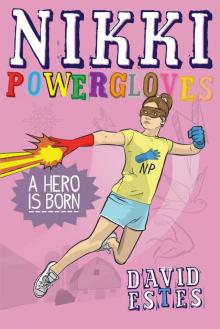 Nikki Powergloves- A Hero is Born
Nikki Powergloves- A Hero is Born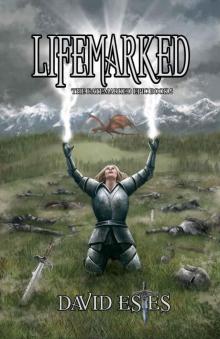 Lifemarked (The Fatemarked Epic Book 5)
Lifemarked (The Fatemarked Epic Book 5) Angel Evolution
Angel Evolution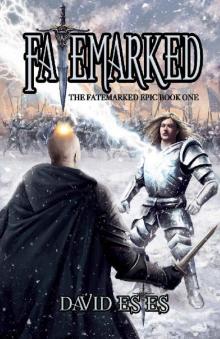 Fatemarked (The Fatemarked Epic Book 1)
Fatemarked (The Fatemarked Epic Book 1) The Star Dwellers
The Star Dwellers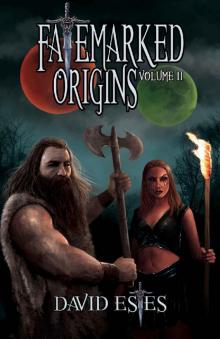 Fatemarked Origins: Volume II (The Fatemarked Epic Book 2)
Fatemarked Origins: Volume II (The Fatemarked Epic Book 2)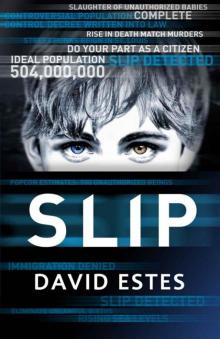 Slip (The Slip Trilogy Book 1)
Slip (The Slip Trilogy Book 1)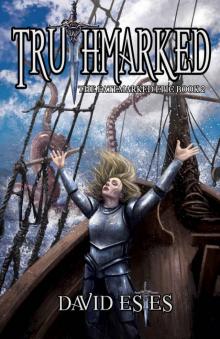 Truthmarked (The Fatemarked Epic Book 2)
Truthmarked (The Fatemarked Epic Book 2) Archangel Evolution
Archangel Evolution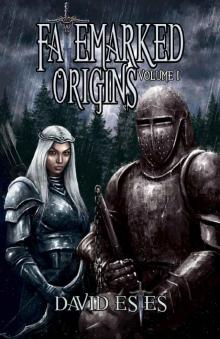 Fatemarked Origins: Volume I (The Fatemarked Epic Book 1)
Fatemarked Origins: Volume I (The Fatemarked Epic Book 1) Flip (The Slip Trilogy Book 3)
Flip (The Slip Trilogy Book 3)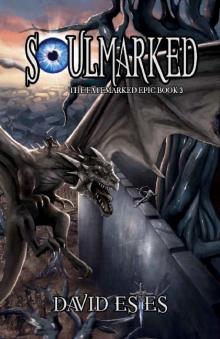 Soulmarked (The Fatemarked Epic Book 3)
Soulmarked (The Fatemarked Epic Book 3) Brew (Salem's Revenge Book 1)
Brew (Salem's Revenge Book 1)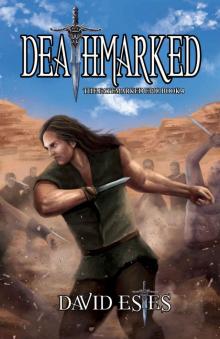 Deathmarked (The Fatemarked Epic Book 4)
Deathmarked (The Fatemarked Epic Book 4)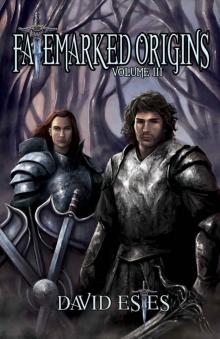 Fatemarked Origins (The Fatemarked Epic Book 4)
Fatemarked Origins (The Fatemarked Epic Book 4) The Moon Dwellers
The Moon Dwellers Boil (Salem's Revenge Book 2)
Boil (Salem's Revenge Book 2)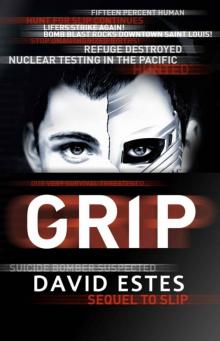 Grip (The Slip Trilogy Book 2)
Grip (The Slip Trilogy Book 2) Salem's Revenge Complete Boxed Set
Salem's Revenge Complete Boxed Set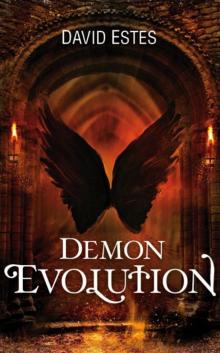 Demon Evolution
Demon Evolution Water & Storm Country
Water & Storm Country The Earth Dwellers
The Earth Dwellers The Sun Dwellers (The Dwellers Saga)
The Sun Dwellers (The Dwellers Saga)